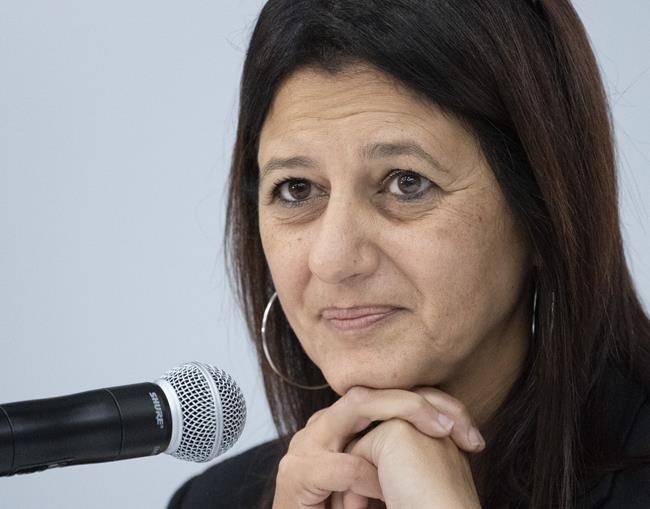Quebec coroner Géhane Kamel said Monday that grieving families may never get the full story behind the thousands of deaths that occurred in long-term care homes during the first wave of COVID-19.
Kamel expressed shock that after a yearlong investigation, there seemed to be no consensus from witnesses on the timeline of how the government responded to the health crisis or where blame should lie for the tragedy.
Her comments came after a former manager with the Health Department told the inquest on Monday that the Quebec government only became aware of the risk COVID-19 posed to long-term care homes in mid-March 2020.
Martin Simard's testimony backed up that of Seniors Minister Marguerite Blais, but it contradicted the testimony of other prominent witnesses, including the province's ex-public health director and former health minister, who both said the province knew of the risk in late January.
Simard said that written internal communication on COVID-19 preparation from January was aimed at the network as a whole and did not focus specifically on the care homes, known as CHSLDs.
Kamel has been examining the deaths of elderly and vulnerable people in seven residential settings during the first wave of the COVID-19 pandemic, as well as investigating the government's response to the outbreaks.
On Monday, Kamel said she was "flabbergasted" at the statements she had heard and at the inability of some witnesses to admit that care homes had been a "blind spot" in the government's response.
"It's been a year that what we've been told is, 'I can't tell you, I can't say, and it may not be our department or our group that was managing,'" she said.
"It seems to me that people should be able to tell us in all honesty: 'Listen, we may have had a little blind spot when it comes to CHSLDs.'"
Simard told the inquiry that the long-term care homes only became a "named issue" on March 11. He said it was the responsibility of then-public health director Dr. Horacio Arruda to highlight the risk to care homes.
He said his role was mainly one of co-ordination between departments and that he experienced no difficulties in that regard.
Kamel had previously expressed hope that Simard's testimony would prove to be the "missing piece of the puzzle." On Monday, however, she said that piece would probably remain missing and that bereaved families would likely be left without answers.
"We can't get to the bottom of this story … is it normal that to this day, we're not able to have a story that holds together?" she said.
"We can't even get this chronology, because it's different depending on which actor is in front of us."
After Simard concluded his testimony, the lawyer for six of the families who lost loved ones in the homes blasted the government response, and Arruda in particular.
Quebec public health reacted "at the same rhythm as the population" — instead of planning ahead when it was clear as of January 2020 that there was a threat to the population, Patrick Martin-Menard said.
He said the slowness of the response was even harder to explain given that the province had an influenza pandemic plan it could have deployed. "Due to this inaction, because of this confusion, this lack of clarity and leadership, we lost crucial weeks," Martin-Menard told the inquiry.
Martin-Menard said it was clear the province hadn't acted quickly, despite what some witnesses claimed, and that Quebecers in long-term care homes had paid the price.
"We let them die alone … in complete indignity, not because it was an inevitable situation, but because we didn't adequately prepare."
This report by The Canadian Press was first published Jan. 17, 2022.
Caroline Plante, The Canadian Press




